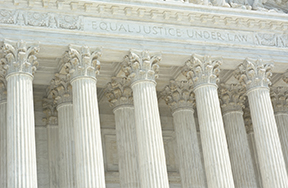

Presumption Laws Make Strong Showing Among New Comp Laws Passed
According to a report by the National Council on Compensation Insurance (NCCI), only twelve percent of proposed workers’ compensation bills gained passage this year.
Tracking 911 state and federal bills that NCCI identified as potentially impactful, the organization noted that 108 bills were enacted across all jurisdictions in the past year. Of these, roughly half (52) addressed mental injuries in the workplace, focusing primarily on medical cost containment measures like introducing or amending fee schedules, treatment guidelines, and medical marijuana reimbursement. Another significant portion dealt with mental injuries and presumption laws, particularly those related to post-traumatic stress disorder (PTSD).
What Are Presumption Laws?
Presumption laws, including cancer presumption laws, benefit first responders—such as firefighters, police officers, and EMTs—by shifting the burden of proof for medical causation. These laws presume that certain diseases are work-related unless compelling evidence proves otherwise. Critics argue that these laws are more a product of politics than science, yet they remain significant cost drivers in workers’ compensation for public employees. Such laws are designed to streamline the benefits process and reduce barriers for those exposed to hazardous conditions in their line of work.
The Momentum for Presumption Laws
In 2024, there is notable momentum in expanding workers’ compensation presumption laws, aimed at simplifying benefit access for high-risk professions like first responders. These laws effectively remove the need for workers to prove a direct link between their illness or injury and their job, facilitating easier claims. California continues to lead in this area, extending coverage to conditions such as PTSD and various cancers linked to firefighting and emergency response. These expansions follow earlier adjustments related to COVID-19 for healthcare workers and essential employees.
Other states, including New Jersey, Alaska, Arizona, Colorado, and Oregon, have also broadened their presumption laws to cover cancers associated with recognized carcinogens like those identified by the International Agency for Research on Cancer (IARC). This trend helps ensure that first responders and other high-risk workers can access benefits more readily, reducing the need for lengthy litigation. There is also growing discussion about applying presumption laws to additional professions, including those in healthcare and the gig economy, to better address the evolving risks of modern jobs and provide more comprehensive worker protection.
Fourth of July Exuberance Ruled Non-Compensable
Pros and Cons: Fee Caps on Workers’ Compensation Cases
Presumption Laws Make Strong Showing Among New Comp Laws Passed
What’s the Difference Between a Stipulation and a Compromise & Release?
Work Comp Fraud Losses Surge Since 2020
The information presented and conclusions within are based upon our best judgment and analysis. It is not guaranteed information and does not necessarily reflect all available data. Web addresses are current at time of publication but subject to change. SmartsPro Marketing and The Insurance 411 do not engage in the solicitation, sale or management of securities or investments, nor does it make any recommendations on securities or investments. This material may not be quoted or reproduced in any form without publisher’s permission. All rights reserved. ©2024 Smarts Publishing. Tel. 877-762-7877. https://smartspublishing.com